All varieties of campers share their love for The Great Outdoors, but if there’s one thing that categorizes them into two distinct groups it’s the hammocks vs tents debate. The two, although similar, provide two very different sleeping experiences out in the wild.
In this guide, you’ll learn all the similarities and differences between hammocks and tents, the pros and cons of each, and why hammock camping ultimately comes out on top (literally).
Is hammock camping worth it?
Both tent and hammock camping have their own learning curve. It would be rare for beginners to get it 100% perfect on their first try. But hammocks, in particular, are lighter and easier to use once you learn how.
At first, it will take more effort to make camping in a hammock work for you, instead of against you. But after a few tries, it’s easy to see why everyone says hammock camping is more than worth it.
You get a seemingly weightless night’s sleep, a greater sense of freedom, and not to mention there are fewer accessories to carry with you in comparison to tent camping.
So yes, hammock camping is worth it, but only if you prepare accordingly and equip yourself with the right mindset.
Hammocks vs tents – advantages and disadvantages
Before you head out on your next camping adventure, there are some pros and cons of both hammocks and tents you should consider before choosing one over the other.
Finding a campsite
When it comes to finding a campsite, hammocks definitely have the advantage of being extremely versatile. Finding a campsite for tents might be easier in the traditional sense. But hammocks truly have the flexibility to go anywhere (as long as there are trees!).
According to the Leave No Trace Center for Outdoor Ethics (LNT), if you camp with a tent you will need flat, hard surfaces in order to reduce your impact on surrounding vegetation.
Luckily, hammocks don’t have that problem. As long as you have durable trees and proper hammock straps for installation, you can sleep over virtually any type of land surface. However, that doesn’t mean that hammocks don’t leave any trace. They can still leave scars on trees if they’re not correctly set up.
We have a full discussion on this here.
Setting up
Speaking of setting up, hanging a hammock tends to be easier and faster to set up than a tent. With hammocks, you really only need secure hammock straps plus your hammock for a basic set up. It’s impertinent to never hammer or screw in hooks as this causes irreversible damage.
In general, setting up a tent can be frustrating and messy. Even for advanced campers, setting up a tent takes more time, effort, and more equipment such as stakes, poles, anchors, and tarps, just to name a few.
Comfort
Another argument in the hammocks vs tents debate is overall comfort. Comfort is relative — some people prefer the weightless sleep a hammock provides while others prefer the stability of a tent. Plus, with tents, you can accessorize and make the sleeping experience even comfier.
For example, you can carry with you sleeping mats, mattresses, and foam pads. However, this means you’ll need a larger budget to accessorize for comfort.
It will also result in packing and carrying a heavier bag. Not to mention, unless you find perfectly flat ground, you can quickly find yourself positioned on a stubborn rock as you roll over in the middle of the night.
Generally speaking, hammocks should provide more comfort as your body relaxes into a natural sleeping position which is known to be better for both your mental and physical health.
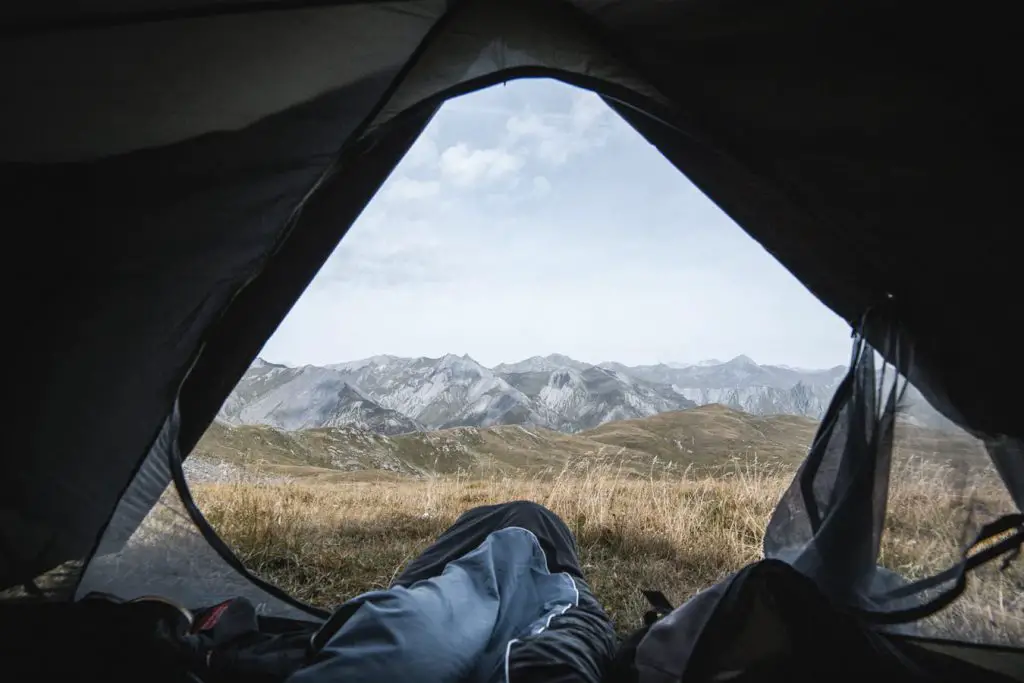
Managing the weather
Considering the weather is crucial when debating between hammocks and tents. As any pro camper will tell you, the weather can turn on you in a blink of an eye. One minute it can be warm and dry and the next cold and wet.
Tents have the advantage of coming equipped with rain gear, but they’re not foolproof. And if there’s a downpour, the once dry ground becomes hazardous as rain begins to pool and seep into the tent. With hammocks, you don’t need to worry about groundwater. But you do need to protect yourself from the rain and wind.
So if you choose to go camping with a hammock, make sure to carry an anti-drip rope and a hammock rain tarp in order to stay dry.
Practicality
In terms of practicality, campers tend to prefer hammocks over tents. They’re lightweight, versatile, and can roll up into the size of a sleeping bag which makes packing effortless.
Tents have the disadvantage of being bulky, heavy, and time-consuming to undo and pack up again.
Protection
When it comes to protection and safety, both hammocks and tents compare equally. Both can protect you from the weather – as long as you have the right equipment.
As for protection from wildlife, hammocks have the added feature of being able to exit freely in case of danger, whereas tents tend to only have one exit which can hamper your ability to escape quickly.
Bears and other predators will also be able to access and tear into your tent on the ground easier, especially if they’re after food.
Limitations
Overall, there are a few limitations for both hammocks and tents. Here are just a few:
Hammocks:
- Requires evenly-spaced trees (unless you have adjustable hammock straps)
- Needs durable trunks
- Less space for storage
- No room for pets
Tents:
- Requires more time and tools
- Needs flat and durable ground away from water
- Less space to stand up or get fresh air
- More expensive than hammocks
- Are heavier and bulkier
- Limited to existing campsites
Although this list isn’t exhaustive, you can already see that, in general, tents are more limiting than hammocks!
If you like to hike and camp minimally, i.e. with no frilly accessories or hefty bags, then a hammock will free you up whereas a tent seriously weighs you down.
Price
When comparing hammocks vs tents, you might want to start at their price points. Tents are going to be more expensive than hammocks in nearly every case.
A decent, high-quality tent will cost upward of $150 and beyond without accessories. Basic 2-person tents from REI cost $125-165+ while high-end ones cost up to $500. That really starts to add up for families of four or more.
On the other hand, hammocks are extremely budget-friendly at less than $100 or even $50. With such a low starting budget, accessorizing for hammocks vs tents becomes much more affordable.
Privacy
Since tents require setting up within an existing campground it’s likely you’ll have neighbors. That is one definite advantage of hammock camping — you’re free of constraints to find solitude out in nature! In short, you will have less privacy with tent camping vs hammock camping.
Weight
Weight is a big factor to consider when choosing between a tent or hammock. On average, a tent weighs around 2.5 pounds per person and up to 5 pounds or more when you add accessories.
On the lighter side, camping hammocks average less than 2 pounds per person and up to 4 pounds when fully-loaded with rain and bug protection.
The difference between hammock vs tent weights seems small, but you’ll quickly feel that extra poundage as soon as you head out to hike.

Size
Similar to the weight debate is the size of hammocks and tents. However with this one, the argument is quite visible. Hammocks are much smaller to carry than tents.
Without the need for poles, stakes, and other items, hammocks can roll up into small-sized sleeping bags (especially the lightweight nylon ones). While tent sizing is somewhat straight-forward (for 2, 4, 6 people, etc.), you’ll want to consider your height and weight when choosing a camper hammock size.
Pets
Many hikers and campers love to explore with their adventure pups. With tents, bringing along a furry family member is usually easier. After all, they can sleep inside the tent with you and stay safe from the weather and wildlife.
When you sleep in a hammock, there’s not even extra space to host a cat, let alone a dog. If you love to camp with your pet, you may want to consider choosing the tent lifestyle over a hammock.
Reasons to switch from a tent to a hammock
Aside from the technical point of view of hammocks vs tents, what are some reasons to make the switch? Here are three core reasons to take the plunge!
1. You get to sleep with a view of the stars!
It’s no surprise why so many outdoor enthusiasts are naturally attracted to camping in a hammock. You’re out in nature and have fresh air. You have a blanket of stars to stare at as you drift off to sleep. What more could you ask for?
2. Hammocks = More than just a bed
It helps to not think of hammocks only as a place to rest your head. After all, a hammock is a hammock! Use it for fun! They are great for relaxing and reading, taking naps, or using them as a seat off the ground.
While tents heat up and become too hot to relax in during the day, you don’t have that problem with hammocks.
Also, even if you don’t end up choosing to sleep overnight in a hammock, bringing one with you while clamping adds to the adventure and frees you up to explore beyond your campsite.
3. You sleep better
As previously mentioned, it’s shown that sleeping in a hammock is better for you. Hammocks relieve back pain and physical ailments as there are no pressure points on your body from hard ground or beds.
They also give you a deeper, more rested night’s sleep. They’re even proven to help cure those who struggle with insomnia!
The conclusion: is a hammock or tent better for you?
Although both are used for the same purpose, hammocks and tents vary widely in available features, styles, sizes, versatility, and more.
But out of all their similarities and differences, there’s one thing that remains certain; the hammock vs tent debate will continue to be a hot topic among camping enthusiasts for a while.
Overall, it seems hammocks are more flexible in many ways in comparison to tents, which have more limitations on budget, location, and even time.
Ultimately, choosing between a hammock vs a tent will wind down to whether or not you like to sway in the air or stay on stable ground! So which will you choose for your next camping adventure — a hammock or a tent?
Related articles
Best Hammock Sleeping Pads For Summer And Winter
Finding The Best Hammock Mosquito & Bug Net
Best Hammock with a Bug and Mosquito Net
How To Find The Best Hammock Straps

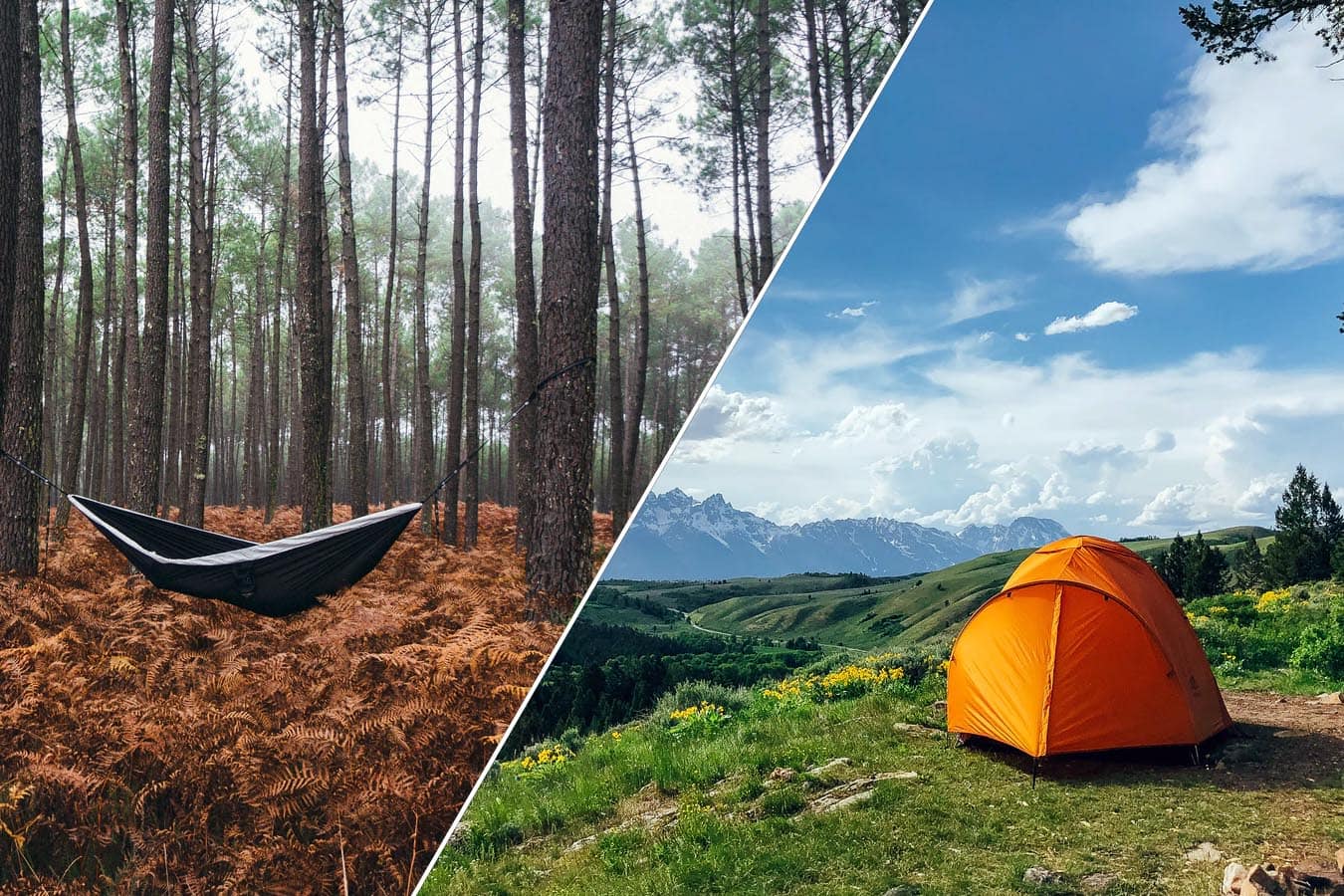
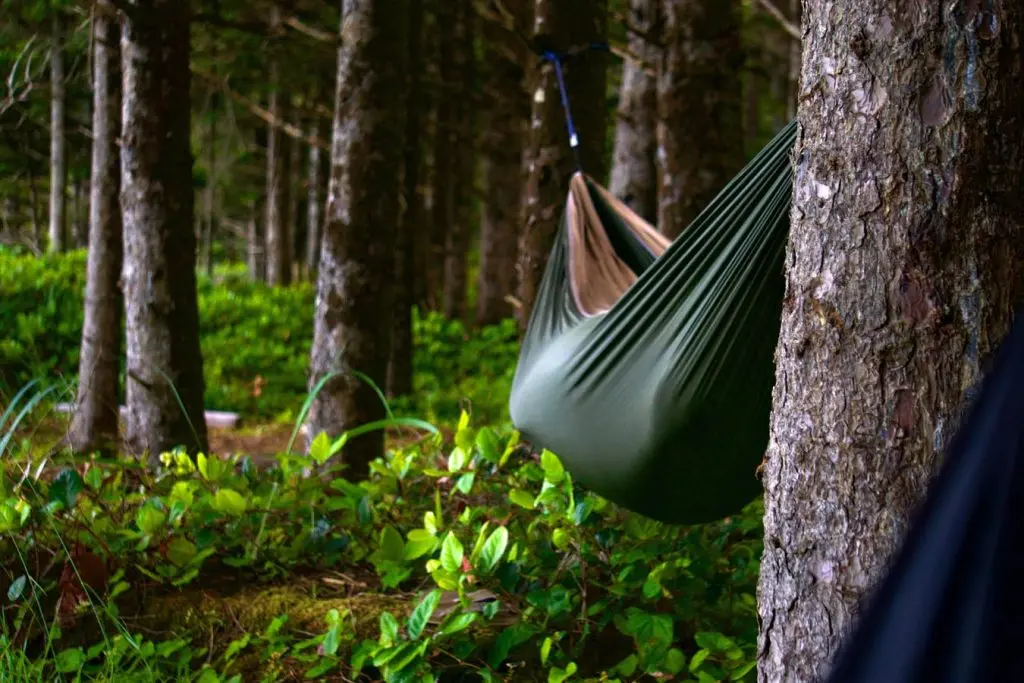
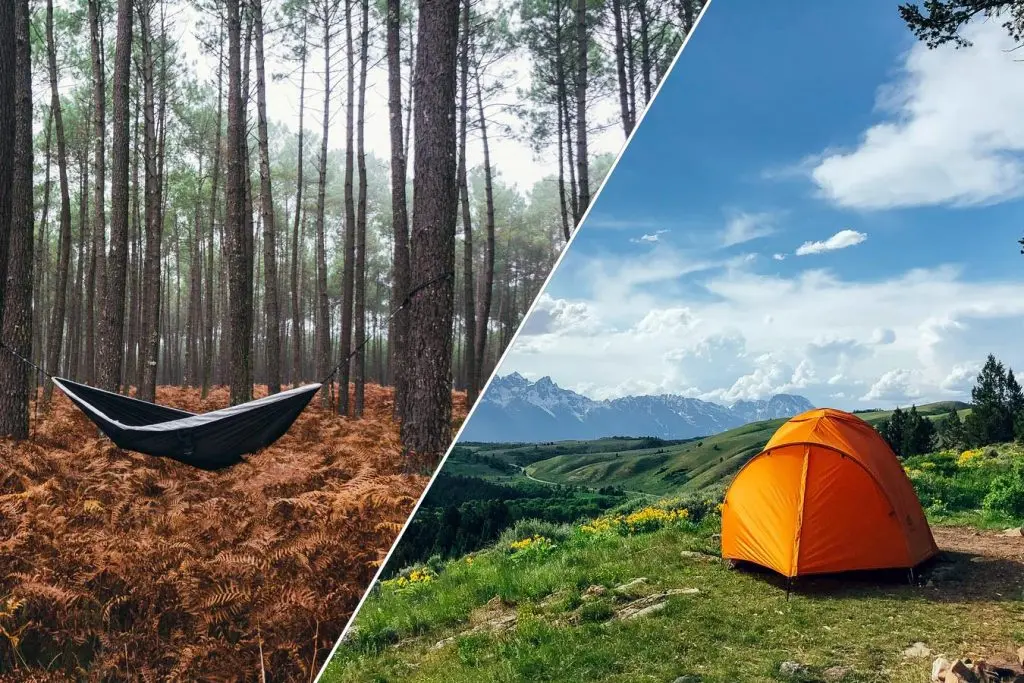
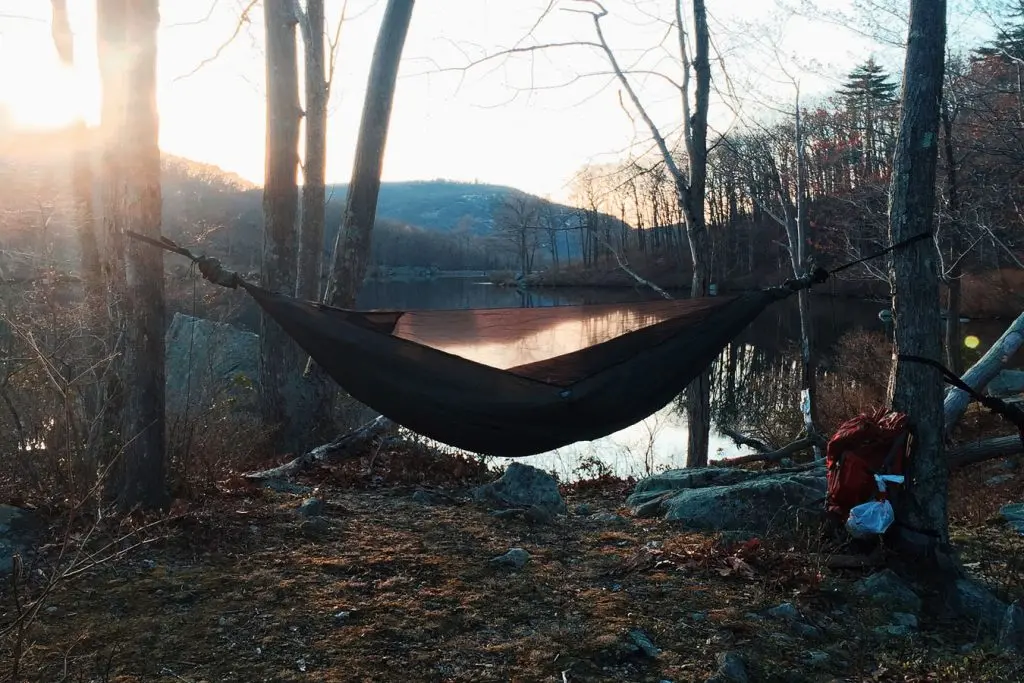
This Post Has 0 Comments
Your comment is awaiting moderation.
Хотите пробить человека конфиденциально? Эта платформа поможет актуальную информацию по запросу.
Используйте уникальными инструментами для поиска данных в мессенджере . Отчёты формируются мгновенно .
Узнайте активность в сети, местоположение или связи через алгоритмы анализа.
https://t.me/GlassBogSearch
Бизнес-пользователей доступны персональные настройки — от проверки номера до архивации истории.
Все запросы обрабатываются без упоминания вашего имени , сохраняя конфиденциальность .
Регистрируйтесь и получите доступ с профессиональными инструментами уже сегодня!